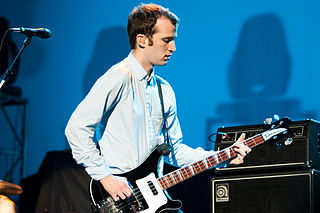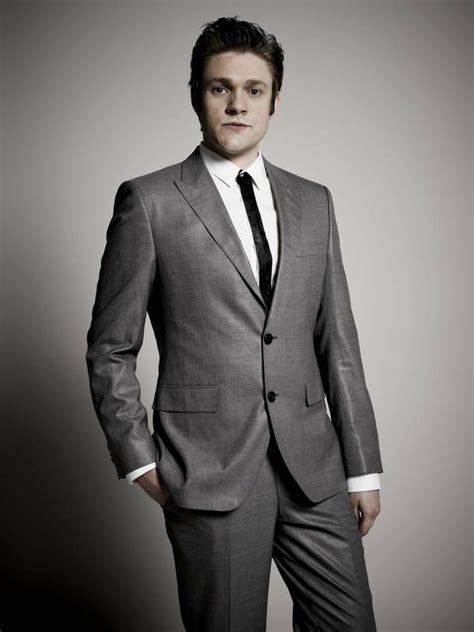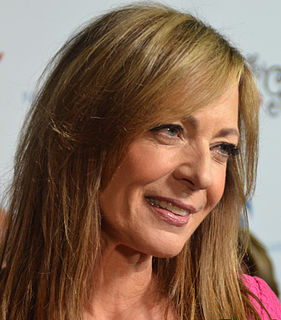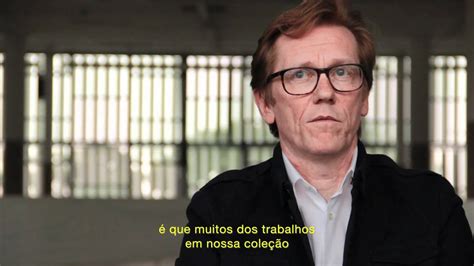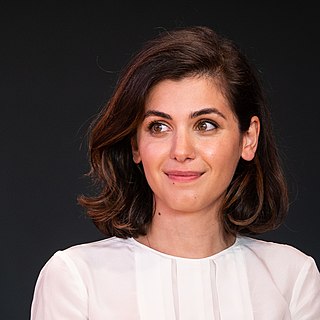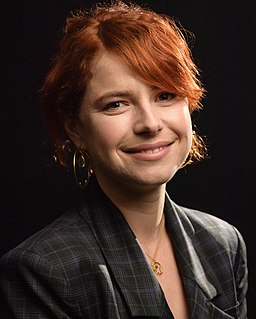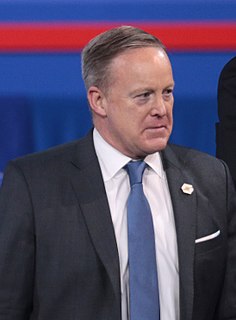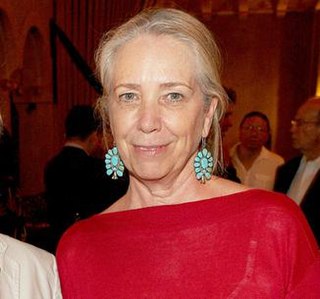A Quote by Joshuah Bearman
I don't think that the people in my stories are lying to themselves. Well, some of them are - everybody is at some level. But there is something about how they all inhabit a narrative of their own making.
Related Quotes
There's still people that do it poorly... and people that do it very, very well. I think there's still an incredible spectrum. I guess there's something that's appealing in it, in that everyone on some level is a DJ. But people still go to clubs, and there's still... it is interesting - with everyone having an iPod now - when music is so personalised and things like Pandora and making your own playlists, there's something really powerful about a room full of people all dancing to the same song.
I actually did an Agatha Christie monologue for my audition showcase at Guildhall, and that's how I got my agent. Some people said 'ooh it's old hat' and 'too risky'. Some people think she's all about the narrative and thriller aspect at the expense of character and I disagree. I did it anyway and it worked well.
Stories? We all spend our lives telling them, about this, about that, about people … But some? Some stories are so good we wish they’d never end. They’re so gripping that we’ll go without sleep just to see a little bit more. Some stories bring us laughter and sometimes they bring us tears … but isn’t that what a great story does? Makes you feel? Stories that are so powerful … they really are with us forever.
I think everybody plays a role in their own aging. Some people accelerate it. Some people slow it down. Some people manage to reverse it. It all depends on how much you are invested in the hypnosis of our social condition. So if you believe that at a certain age you have to die and you become dysfunctional, then you will.
These artists all have some kind of message to the public. These messages can be quite personal, maybe about their own existential situation, and it can be about suffering, it can be about questioning of one's existence and so on. They are all telling us very genuine stories, which are touching us in different ways and they are enlightening in different ways. But it's not only the stories themselves, but it's how it is done - that creates the impact of the story. It is not what is said but how it is said. I don't think you can dissociate the content from the form.
Some people say, 'Well you're a man; how do you write about women or girls when you don't know about them?' Well, I've got my imagination, and I can write about women. Yes, I'll never be pregnant and give birth to children, but I can imagine a bit of what it's like. When you create characters, it's just about making them really real to people.
Some of the songs are inspired by personal things that have happened. Others have been inspired by other people's stories, you know, like someone that witnesses something and so I tell the story through my own eyes. And some songs are just about how I feel about the world and others about the places that we have travelled to.
I think most people aren't really privy to how stories are developed and what stories are - make it to the front page or to the mainstream media, whether it's in print or in broadcast. And I think they'd be shocked and disappointed to see some of the bias that exists in some of the stories that don't get told - or the manner in which they are told.
The thing about great fictional characters from literature, and the reason that they're constantly turned into characters in movies, is that they completely speak to what makes people human. They're full of flaws as much as they are full of heroics. I think the reason that people love them and hate them so much is because, in some way, they always see a mirror of themselves in them, and you can always understand them on some level. Sometimes it's a terrifyingly dark mirror that's held up.
If children are given some real content, they can feel powerful with their own understanding of it. I think a movie like 'Indian in the Cupboard' will instruct them how to proceed as people. They can think about whether they would have done something the way a character did, how they would have felt about an event in the story.
He would talk to them of stories and books, and explain to them how stories wanted to be told and books wanted to be read, and how everything that they ever needed to know about life and the land of which he wrote, or about any land or realm that they could imagine, was contained in books. And some of the children understood, and some did not.

